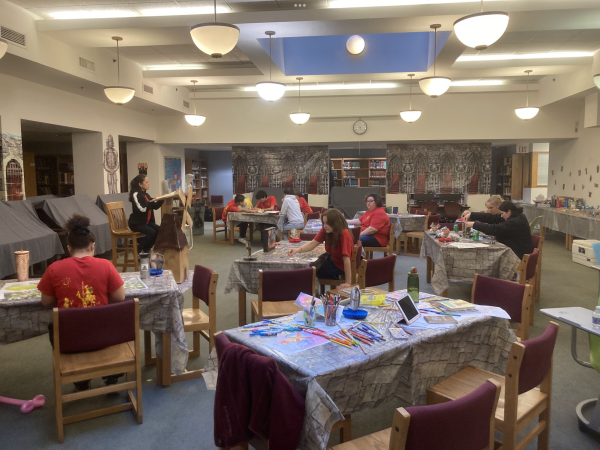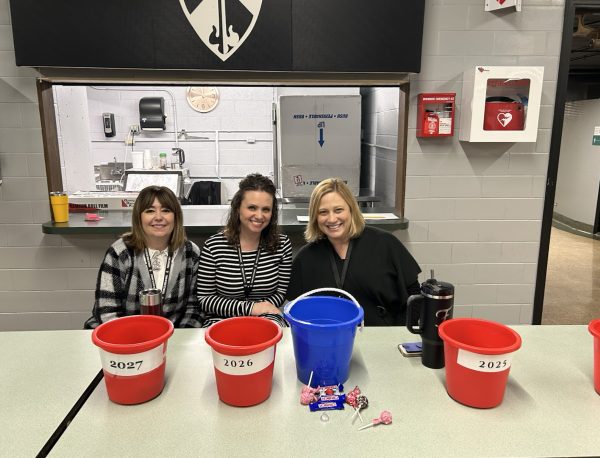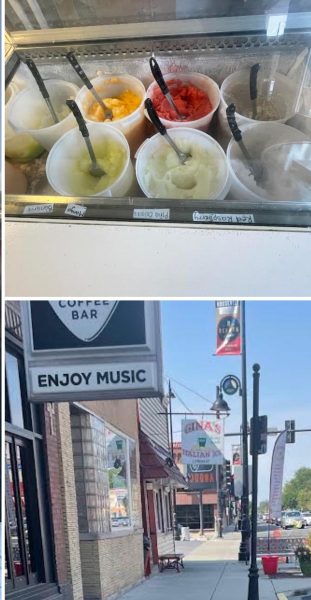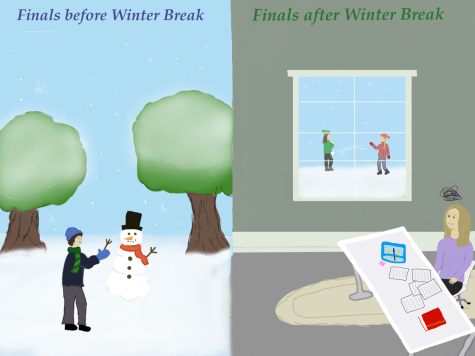Together, Yet Apart: Schools Navigate Illinois Stay-at-Home Order
Under the leadership of governor J.B. Pritzker, Illinois has been under a shelter-in-place order since March 21—an order that has made e-learning the new norm for Fenwick and K-12 schools across Illinois.
Oak Park issued their shelter-in-place order on March 19. After Oak Park’s first resident tested positive for COVID-19, the mayor of Oak Park, Anan Abu-Taleb, declared a local state of emergency. Additionally, Abu-Taleb met with River Forest president Cathy Adduci, and Forest Park mayor Rory E. Hoskins. River Forest and Forest Park leaders asked citizens to engage in preventative measures to limit the virus’ spread, and to follow a voluntary request to stay inside as much as possible. Forest Park and River Forest, however, kept the voluntary request in place as opposed to an order.
Pritzker’s decision to call a stay-at-home order for Illinois was based off the advice of medical professionals in order to avoid the potential loss of thousands of lives. Pritzker differentiated between a stay-at-home order and a quarantine, and he has relied on Illinoisans to be good citizens in upholding their communities’ safety standards. The governor said, “I fully recognize, in some cases, I am choosing between saving people’s livelihoods. But ultimately you can’t have a livelihood if you don’t have your life.”
Schools responded differently to the shelter-in-place order. Pritzker’s order required all K-12 schools to close—but classes continue for students online. While Fenwick students transitioned immediately into e-learning, Chicago Public Schools began remote learning on April 13 after using “Act of God” days—state-approved days off from school that cover circumstances beyond districts’ control—for temporary school closures. According to Caroline Bryan, a student at Lane Tech, there are potential problems with the closing of CPS: “I know CPS has made all work extra credit, but it’s hard to make sure everyone has access to tech to learn because some areas of Chicago are really poor while others are really privileged.”
During e-learning, the Illinois State Board of Education (ISBE) indicated that no schoolwork done on days in which school is not open should be graded. This means that student work completed during the statewide closure should not negatively impact grades, but that it will be allowed to increase students’ academic standing. At Chicago Senn High School, e-learning implemented won’t negatively impact grades but it will provide enrichment and chances for students to improve their grades.
At Fenwick, each student is required to check-in for attendance on Schoology by 9 a.m. and to complete 45 minutes of assigned work for each class, unless the student is unable to complete work. Teachers are available over email from 9 a.m. to 4 p.m., and students are expected to submit work by 4 p.m.
During this period of adjustment into e-learning, I would encourage everyone to think of the good e-learning is doing. E-learning may not be to our particular liking, but it is absolutely necessary to protect the well-being of everyone at Fenwick. Pet your dog or cat, spend time with your family, read a book, or take up a new hobby. We are Friars, and even in our time apart, we can still be together; once a Friar always a Friar.












